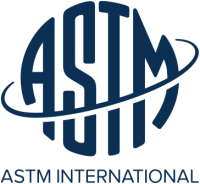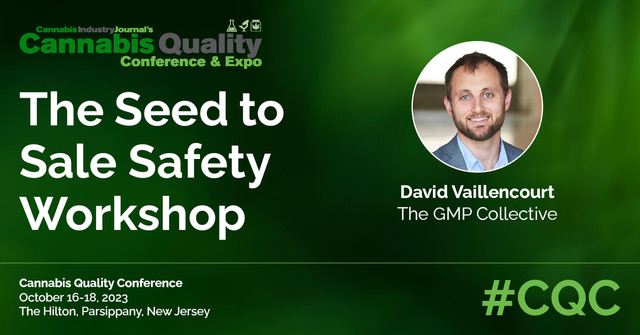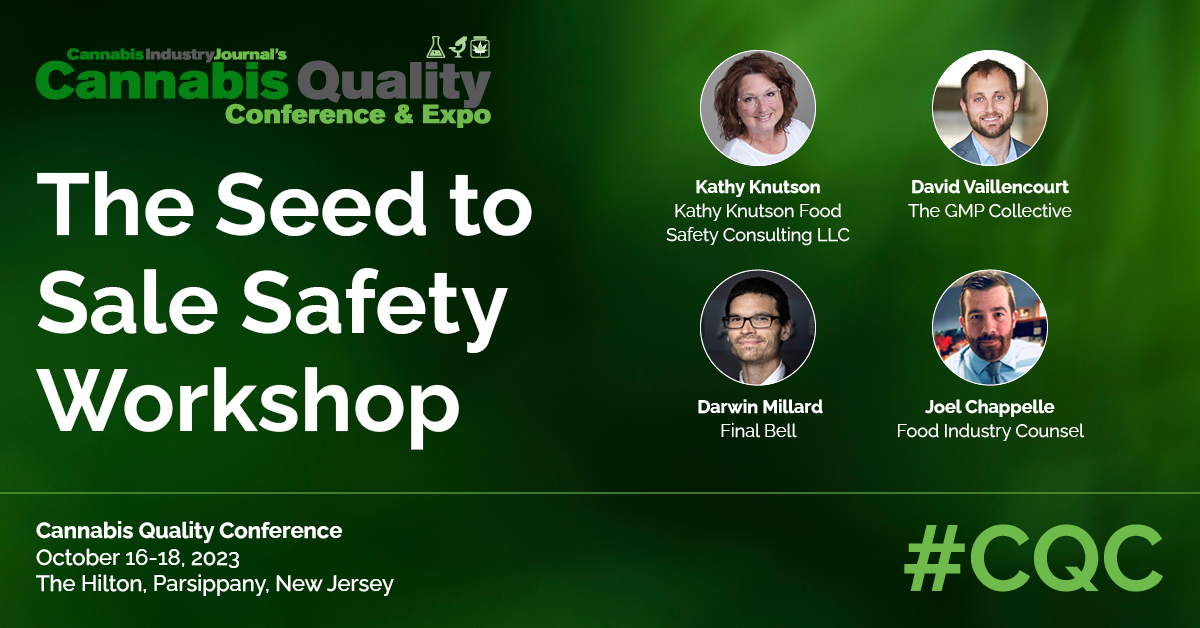Recently, Congress requested detailed information regarding the regulation of CBD and other cannabinoids. This comes on the heels of frustration around federal inaction with regards to cannabinoid-containing products produced from Cannabis sativa L. plant extracts that can be classified as “hemp” products amidst the clear need for safety standards that goes above and beyond state minimum compliance requirements.
A Historical Deja Vu?
The author will be joined by his colleagues leading the Seed to Sale Safety Workshop on October 16 at the Cannabis Quality Conference. Click here to learn more. Product safety standards predate the birth of our nation (and many others). From the days of the first pharmacopeias which rival the oldest documented use of the cannabis plant, to modern regulations, the quest for safety has been a constant theme. But as the saying goes “Old habits die hard,” but so do safety issues. From peanuts to thalidomide and tobacco, we’ve seen this movie before – and it is time for a new ending.
A Universal Desire for Safety
Whether you are an investor, executive, technician or anywhere in between – nobody in the cannabis industry (and all its end uses, including industrial hemp) wants to knowingly produce unsafe products. The risks of ignoring safety are real and tangible. Whether it is 20+ years in jail for being an executive of a company that knowingly sold adulterated products and was linked to seven deaths or 10,000+ deformed children, many of whom died at birth because of a drug approved for morning sickness – there is no shortage of case studies we can learn from. Even cannabis has been known to cause injury and death in consumers – not because of the d9-THC, but the impurities. As the industry continues to innovate and develop new product form factors – whether it is new delivery methods of d9-THC in soluble beverage forms, or the rise of manufactured cannabinoids in unregulated marketplaces – it’s critical to understand the risks of your entire production process and to mitigate them. No cannabis company is immune from making costly and dangerous mistakes. It’s not just about compliance – it’s about public health and safety.
Safety Can Be a Sticky Subject
 Safety is indeed a complex subject, especially when it comes to cannabis products. For instance, acceptable limits for microbial contaminants for the inflorescence of a Cannabis sativa L. plant are quite literally all over the map. What about the route of administration? Take an inhaled product (like a vape pen) vs. an ingested product (e.g. an edible). Many outdoorsy people like myself may enjoy the smell of cooking s’mores over a campfire, but the particles and VOCs can irritate our lungs, especially when exposed over long periods of time. We aren’t inhaling those s’mores – so the production of the marshmallow, chocolate and graham crackers come with different risks we need to evaluate. It’s not just about the product – it’s how it’s consumed.
Safety is indeed a complex subject, especially when it comes to cannabis products. For instance, acceptable limits for microbial contaminants for the inflorescence of a Cannabis sativa L. plant are quite literally all over the map. What about the route of administration? Take an inhaled product (like a vape pen) vs. an ingested product (e.g. an edible). Many outdoorsy people like myself may enjoy the smell of cooking s’mores over a campfire, but the particles and VOCs can irritate our lungs, especially when exposed over long periods of time. We aren’t inhaling those s’mores – so the production of the marshmallow, chocolate and graham crackers come with different risks we need to evaluate. It’s not just about the product – it’s how it’s consumed.
Safety Standards – the Fabric of Our Society
Standards are unsung heroes of our daily lives. Whether it’s to keep planes from falling out of the sky, cribs and dressers from crushing young children, preventing train derailments or ensuring the safety of our food and medical products – standards keep us protected – just like grandma’s quilt. The absence of standards can be expensive, and anyone familiar with the accusations of d9-THC lab-shopping and inflated label claims knows that the cannabis industry is the poster child for this.
Congress has long recognized the importance of standards in protecting everyday consumers, as demonstrated by numerous legislative acts. A few notable and relevant ones to cannabis are below:
- 1848 Drug Importation Act: First major act that combated the importation of substandard – adulterated drugs imported from overseas into the nation which was having a major impact on soldiers of the Mexican-American War. This Act included legal requirements for drugs to meet the US Pharmacopeia’s standards for strength, quality, and purity.
- 1906 Food and Drugs Act: After an increase in adulterated and misbranded foods and drugs – made famous by Upton Sinclair’s The Jungle, the relentless work of Dr. Harvey Wiley, a Chief Chemist with the then US Department of Agriculture and his “poison squad” – led to significant oversight of adulterated food and drugs including legal adherence to the US Pharmacopeia and paved the way for the current FDA.
- 1938 Food Drug, Cosmetic Act: Shortcomings in the 1906 Food and Drugs Act were catalyzed by over 100 deaths after a wonder drug that was analogous to antifreeze led to an outcry that led to the passage of the FDC&A. From factory inspections, to strict marketing and label requirements, to legally enforceable food standards and tolerances for certain poisonous substances – the FDA was given substantial more oversight to protect the growing United States. It also expressly recognized USP quality standards for medicines with USP standards also binding for any dietary supplement manufacturer that labels their products as being compliant with USP specifications.
- 1994 Dietary Supplement Health Education Act (DSHEA) defined and regulated dietary supplements which carved out significant exemptions for the dietary and herbal supplement industry from most FDA drug regulations. This act has been met with significant controversy as it greatly limited the FDA’s capacity to ban or restrict supplements until evidence of a major safety or adverse event is tied to the product of concern.
- 1995 National Technology Transfer Advancement Act (NTTAA) – A lesser known act that is focused on standards and technology that requires participation of federal agencies in voluntary consensus standards bodies. Extending beyond foods and medicines – this act covers a broad array of infrastructure and technology regulations that ensure the fabric of our society operates (largely) without issue.
Over 1,000 ASTM standards are incorporated by reference in the US Code of Federal Regulations across nearly 30 federal agencies (searchable here), a demonstration of the value and impact public voluntary standards have in our society.
 At the FDA, ASTM standards are used every day to keep us safe. Whether it is to measure the absorbency of tampons (21 CFR 801.430), enforce safety specifications of synthetic and natural wax coatings that are used to coat much of our produce, gummies and more (21 CFR 178.3770), quantifying the impurities in our bottled water (21 CFR 165.110) and many more.They have long been recognized as the de facto minimum standards that balance the need to protect consumers without imposing undue burdens on innovation by industry.
At the FDA, ASTM standards are used every day to keep us safe. Whether it is to measure the absorbency of tampons (21 CFR 801.430), enforce safety specifications of synthetic and natural wax coatings that are used to coat much of our produce, gummies and more (21 CFR 178.3770), quantifying the impurities in our bottled water (21 CFR 165.110) and many more.They have long been recognized as the de facto minimum standards that balance the need to protect consumers without imposing undue burdens on innovation by industry.
The process of developing an ASTM standard, which was developed and used to keep our trains from derailing 125 years ago, is now the home of 510+ cannabis industry specific standards. Whether it’s acceptable water activity levels in cannabis flower, a truly universal symbol to alert consumers of intoxicating cannabinoids, medical cannabis flower specifications developed in close guidance of the US Pharmacopeia, or how to apply the principles of HACCP to cannabis products, a lot of the hard work has already been done for the industry. It’s simply a matter of knowing where to look and how to use them!
The path to safe and sustainable cannabis products is clear, and the tools are available. It’s time that we learn from the past, apply the standards of the present and mitigate the risks of the future. Now more than ever before, it’s easy to make safe cannabis products and a credible marketplace not just a goal, but a reality.










